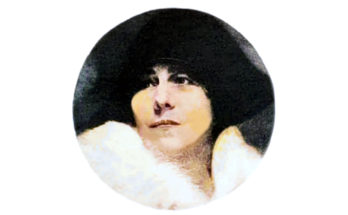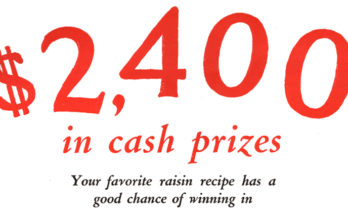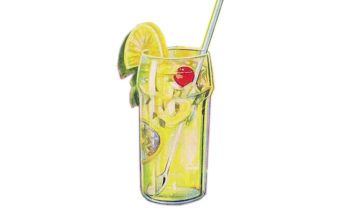I think we all loved the colorful circle design of the Wonder Bread bags in the 1960s. Here’s a vintage booklet [reddit], The Wonder Sandwich Book from the 1920s that inspired the comments here, below, and on reddit.
Who is the author, Alice Adams Proctor? — was she related to Proctor & Gamble, having the goodwill their name bestowed in 1928? Or is Alice Adams Proctor a cousin to Booth Tarkington’s 1922 Pulitzer Prize winning novel “Alice Adams” about a poor young woman attempting to lift up her family? Perhaps she was fashioned from a bit of both? Early spokesperson and author for Hostess products including Wonder Bread, “Alice Adams Proctor” was a fictitious person for the company — sort of like Betty Crocker but without a portrait. Speaking of fictitious, this is what Alice Adams Proctor didn’t quite say in the January 1920s magazine ads, “Ladies, you do not want to bake anymore, do you. Keep looking at the colorful circles, You do not wish to bake anymore. When I snap my fingers you will leave all your baking needs to us.”
But what she actually said was, “…through their utter goodness, they have banished baking from millions of homes.”
“Alice Adams Proctor” wrote another Wonder booklet, Menu Planning with Wonder Pan Rolls (no affiliation with Etsy seller, but page 2 has a beautiful illustration with elbows on table.)
Wonder Bread in 1929 was “easy to slice” compared with other breads. It was not purchased sliced!
Sliced bread was invented in Missouri in 1928, the same year The Wonder Sandwich Book was published. Wonder Bread was one of the first to offer sliced bread, beating out competition such as Bond Bread. Other bread companies quickly followed through — Wiki mentioned 80% of all store-bought bread was pre-sliced by 1933.
In 1929 Hostess sold big fully-frosted cakes for entertaining and little cupcakes for lunches and children, “fresh every day.” This says something about profitability and the marketplace — how the big frosted cakes were soon discontinued, I believe, and only items for lunches and children remain, and of course the breads.
Also in 1929 “Alice Adams Proctor” wrote for a Wonder Bread newspaper ad: “We prefer to sell Wonder Bread to homes where there are children. Children above all suffer from lack of balanced diet. Wonder Bread does much in correcting this. Being rich in carbohydrates, it builds up that vital “energy reserve.” How We Make It To make it we employ matchless chefs. They work in model kitchens. We never hurry them. We use a specially milled “short patent” flour. Only the heart of the wheat berry is used. We use double the usual amount of milk. And we pasteurize every drop.…Wonder Bread is “slo-baked.” This means…slower baking and more careful baking….”
In 1928 “Alice Adam Proctor” described Wonder Bread as nutritious because it was a carbohydrate. I’m speechless. But in olden days the more calories, the healthier it was to the people, even if it was sugar, and this phenomenon of calories may have been what they were explaining.
Responding to comment: Yes, I believe the company was aiming for the poorer folks — and in 1929 “everyone” with few exceptions were effected by the Depression. As you mentioned, it could have been a net positive.
Modern article by Sally Edelstein with retro ads here — mentioned that Hostess Twinkies, etc. was to shut down, (what?!) which they did near after she wrote in 2012. Fortunately, Flower Foods of Georgia revived our classic favorites.
“In 1890, about 90 percent of bread was baked at home, but by 1930, factories usurped the home baker.“ — Jesse Rhodes, 2012, Smithsonian Magazine — article also mentions consumers equated softness with freshness so “savvy bakery scientists turned their minds to engineering even more squeezable loaves.”
“Medieval bakers were essential as bread was a staple in The Middle Ages. Bakers were part of a guild, and their produce was heavily monitored and regulated. Bakers could be publicly shamed or fined for any bread that was not within the standard. In severe cases, their ovens would be destroyed.” — Givemehistory editors, 2022


